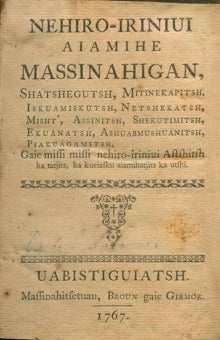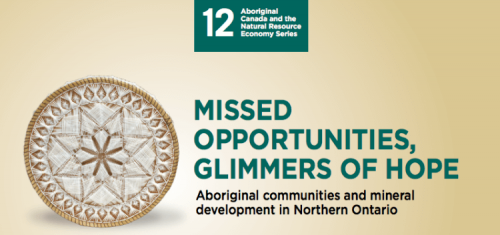The Daily Bulletin is published by Internal and Leadership Communications, part of University Communications
Contact us at bulletin@uwaterloo.ca
Submission guidelines
Editor:
Brandon Sweet
University Communications
bulletin@uwaterloo.ca
 The nomination period for the President's Community Impact Awards has been opened.
The nomination period for the President's Community Impact Awards has been opened.
The President’s Community Impact Awards recognize individuals or teams of community members, students, staff or faculty who embody the University’s spirit of innovation and contribute to making Waterloo Region strong and prosperous.
Award winners may be distinguished through such community service activities as volunteer work, public speaking, school outreach, or other outstanding community service.
Up to four awards will be handed out in two categories each year:
Community Leader awards - A Community Leader is a current University of Waterloo student, faculty or staff member who "impacts their community through voluntarism, philanthropy, or other community engagement."
University Champion awards - A University Champion is an individual or organization from Waterloo Region who has "demonstrated a commitment to championing the impact of the University in our community either through partnership with the institution or in working with individual students, faculty or staff."
The awards were established in recognition of the University of Waterloo's 60th Anniversary. The awards will reward and recognize community excellence, promote community pride and participation, and inspire people to contribute to our collective well-being.
Terms of reference and nomination guidelines can be found on the Office of the President's website. The guidelines for collecting supporting documentation are also available.
Nominations close on September 15.
A message from the Library.
International Archives Day (IAD) is celebrated around the world to help people understand why it is important to support archives and the archival profession. People can be confused about what an archives is and there is a misconception that the material held is for internal use only, is difficult to access and is only for historians. IAD helps to demystify archives and dispel these misconceptions.
 Celebrating this year’s IAD theme “Archives, Citizenship and Interculturalism”, the University of Waterloo Library’s Special Collections & Archives department would like to invite members from the Waterloo community to meet with us and learn more about our varied collections that showcase the intercultural history of Waterloo, and the world.
Celebrating this year’s IAD theme “Archives, Citizenship and Interculturalism”, the University of Waterloo Library’s Special Collections & Archives department would like to invite members from the Waterloo community to meet with us and learn more about our varied collections that showcase the intercultural history of Waterloo, and the world.
The event takes place on Friday, June 9 from 9:00 a.m. to 3:00 p.m. in the Special Collections & Archives' Doris Lewis Rare Book Room on the first floor of the Dana Porter Library.
For more information contact Head of Special Collections & Archives Nick Richbell via email at nick.richbell@uwaterloo.ca or by calling 519-888-4567 ext. 32445.
Pictured above is a book of prayers and catechism for the use of the Montagnais Indians by Jean Baptiste de La Brosse, a Jesuit missionary, from the Sol Eisen Collection of Canadiana. Call number B2189.
Smart meters and time-of-use electricity pricing have only modestly reduced residential energy demand during the most expensive peak periods, a new study suggests.
Researchers at the University of Waterloo compared data for nine months before and nine months after time-of-use rates were introduced in November 2011 by an unidentified distribution company with more than 20,000 household customers in southwestern Ontario.
Using advanced statistical tools to factor out the impact of weather differences, their analysis showed residential demand for electricity dropped just 2.6 per cent during on-peak periods and 2.4 per cent during mid-peak periods following the change.
“There is a gain, but the gain is very small,” said Lukasz Golab, a management sciences professor and Canada Research Chair at Waterloo.
Smart meters to enable time-of-use pricing were installed by hydro utilities across Ontario at a cost of about $1 billion. A key goal was shifting demand away from peak periods to reduce maximum capacity requirements and save money on infrastructure.
The study did not attempt to assess if the cost of the switch to time-of-use pricing has been justified by modest changes in the behaviour of residential customers.
“Is it enough?” asked Catherine Rosenberg, a professor of electrical and computer engineering and also a Canada Research Chair at Waterloo. “Of that I’m not sure. We don’t have the data to decide if these kinds of savings warrant the use of smart meters.”
The findings also suggest that time parameters used to set rates may not be aligned properly with actual usage, at least for residential customers. The summer on-peak period on weekdays in Ontario is noon to 5 p.m., but demand actually hit its highest point at 6 p.m. in the utility used for the study.
The research, which also involved former master’s student Reid Miller, was recently published in the journal Energy Policy.

This is an edited excerpt of an article that originally appeared on the Faculty of Environment's news site.
The large-scale mineral deposit in Northern Ontario referred to as the Ring of Fire holds immense potential to bring unprecedented prosperity to Indigenous communities. But a turbulent past and ongoing conflict between First Nations, governments, and mining companies leave much of the mineral potential significantly untapped.
In a report released by the Macdonald-Laurier Institute entitled Missed opportunities, glimmers of hope: Aboriginal communities and mineral development in Northern Ontario, co-authors Heather Hall, professor in Waterloo's School of Environment, Enterprise and Development, and Kenneth S. Coates, MLI’s Munk Senior Fellow in Aboriginal and Northern Canadian Issues (and former Dean of Arts at Waterloo), chart a path forward through the conflict.
Acknowledging the problems of the past and a commitment by all parties to be fair, accommodating and respectful in the future, the authors say, are central to positive progress. "Currently, key stakeholders are continuing to debate issues such as the responsibility for infrastructure development and support for First Nation communities across much of Northern Ontario."
Many Indigenous communities in Northern Ontario suffer from serious social and economic challenges as well as extreme infrastructure deficits that have existed for years, including limited and non-existent road access, a lack of clean drinking water and overcrowded housing. But mining, the report asserts, should not be the spark that generates government investment to address these pressing infrastructure, education, and social needs.
Read the rest of the report on the Faculty of Environment's news site.
The Spring 2017 final examination schedule is available on the Registrar's Office website. The exam period runs from July 28 to August 11.
Learning Innovation and Teaching Enhancement (LITE) grant proposals are due today.
LITE Seed Grants provide funding of up to $5,000 for educational research projects at Waterloo. Read more about the LITE grants program or contact Crystal Tse (ctse@uwaterloo.ca, ext. 31240) or Kristin Brown (kristin.brown@uwaterloo.ca, ext. 32940) at the Centre for Teaching Excellence to discuss project ideas.
The Centre for Teaching Excellence will be closed today for a professional development day and will reopen at regular University hours on Friday, June 2.
The Science Undergraduate Office, located in STC 2031, will be closed tomorrow from 11:30 a.m. to 1:30 p.m.
The Registrar’s Office and Student Awards & Financial Aid are also closing on Friday from 11:30 a.m. to 1:30 p.m.
50 years ago: Sgt. Pepper's Lonely Hearts Club Band
It’s All About Your Skills, June 1, 12:30 p.m., TC - William M. Tatham Centre room 1113.
SERS PhD Seminar featuring Christine Barbeau, “The Challenges and Opportunities Associated with Climate Change for First Nations Living in the Canadian Subarctic,” Friday, June 2, 10:00 a.m., EV1-221.
PhD seminar, “Leveraging asymmetry and interdependence to enhance the social experience of cooperative games,” John Harris, David R. Cheriton School of Computer Science, Friday, June 2, 10:30 a.m. to 11:30 a.m., DC 2585.
Keystone Picnic, Friday, June 2, 11:30 a.m. to 1:30 p.m., DC quad.
Volunteer: Launching Your Career, June 2, 12:30 p.m., TC - William M. Tatham Centre room 1208
PhD Seminar, “Bidder profiling by acquisition and analysis of market data in water distribution industry,” Milad Khaki, PhD candidate, David R. Cheriton School of Computer Science, Friday, June 2, 1:00 p.m. to 2:00 p.m., DC 3323.
Eye Talks: Your Vision is Our Vision public education event and open house, Saturday, June 3, 8:00 a.m. to 12:30 p.m., School of Optometry & Vision Science. Registration required.
Board of Governors meeting, Tuesday, June 6, 1:30 p.m., NH 3407.
Business Etiquette & Professionalism, June 7, 2:30 p.m., TC - William M. Tatham Centre room 1208.
Velocity Start: Setup Your Business Like A Boss, “Legal and accounting considerations that will affect your startup,” Wednesday, June 7, 7:30 p.m., Velocity Start, SCH 2nd Floor.
Résumé Tips: Thinking Like an Employer, June 8, 1:30 p.m., TC - William M. Tatham Centre room 1208.
Problem Pitch Competition, Thursday, June 8, 7:00 p.m., Quantum-Nano Centre Room 0101.
LGBTQ+ Making Spaces workshop, Friday, June 9, 9:00 a.m., NH 3318. Note: this event has been cancelled.
PhD seminar, “Adding mutation to dependent object types,” Marianna Rapoport, PhD candidate, David R. Cheriton School of Computer Science, Friday, June 9, 11:00 a.m. to 12:00 p.m., DC 3126.
Velocity Fund $5K applications close, Monday, June 12.
Spring Convocation, Tuesday, June 13 to Saturday, June 17.
Distinguished Lecture Series, “Algorand, a new public ledger,” Silvio Micali, MIT Computer Science and Artificial Intelligence Laboratory, Tuesday, June 13, 10:30 a.m. to 12:00 p.m., DC 1302.
Banting postdoctoral fellowship preliminary applications due, Wednesday, June 14.
Biology presents a public lecture by Steven Scherer, "Decoding 10,000 Whole Genome Sequences Towards Understanding Autism," Wednesday, June 14, 3:00 p.m., STC 0060.
Velocity Start: Do People Want Your Sh*t? Wednesday, June 14, 7:30 p.m., Velocity Start, SCH 2nd Floor.
NEW - Recognizing Excellence Discussion Series featuring Professor Efim Zelmanov, University of California, "Asymptotic Theory of Finite Groups," Thursday, June 15, 2:00 p.m., DC 1302. Register today.
NEW - Recognizing Excellence Discussion Series featuring Vicki Iverson, "My Journey from Student to Entrepreneur," Thursday, June 15, 3:15 p.m., DC 1302. Register today.
Cryptography, Security, and Privacy Colloquium, “Average-case fine-grained hardness, and what to do with it,” Prashant Nalini Vasudevan, PhD candidate, MIT, Friday, June 16, 2:00 p.m. to 3:00 p.m., DC 2585.
Senate meeting, Monday, June 19, 3:30 p.m., NH 3407.
Electrical and Computer Engineering Distinguished Lecture featuring Professor Göran Andersson, "Research Challenges of the Future Electric Power System," Monday, June 19, 2:00 p.m., EIT 3142.
PhD seminar, A biologically constrained model of semantic memory search,” Ivana Kajić, PhD candidate, David R. Cheriton School of Computer Science, Tuesday, June 20, 11:00 a.m.to 12:00 p.m., DC 2310.
Bike Day, Wednesday, June 21, 8:00 a.m. to 3:00 p.m., Arts Quad.
NEW - Algorithms and complexity seminar, “Settling the query complexity of non-adaptive junta testing,” Erik Waingarten, Columbia University, Wednesday, June 28, 1:30 p.m. to 2:30 p.m., DC 1304.
School of Public Health and Health Systems. Robert Walsh, "Non-Government Organization Leadership in National Healthy Public Policy for Chronic Disease Prevention in Canada: A Grounded-Theory Study." Supervisor, John Garcia. On display in the Faculty of Applied Health Sciences, BMH 3110. Oral defence Friday, June 2, 1:00 p.m., BMH 3119.
Pure Mathematics. Blake Madill, "Contributions to the Theory of Radicals for Noncommutative Rings." Supervisor, Jason Bell. Thesis available from MGO - mgo@uwaterloo.ca. Oral defence Wednesday, June 7, 10:30 a.m., MC 5417.
Biology. Gregory Vey, "The Proximon: Representation, Evaluation, and Applications of Metagenomic Functional Interactions." Supervisor, Trevor Charles. On deposit in the Science graduate office, PHY 2013. Oral defence Friday, June 9, 1:00 p.m., SCT 2002.
Management Sciences. Ata Zare, "Control Mechanisms in Queueing Systems with Nonlinear Waiting Costs." Supervisor, Hossein Mehrizi. On deposit in the Engineering graduate office, DWE 3520C. Oral defence Monday, June 12, 2:00 p.m., CPH 4333.
The Daily Bulletin is published by Internal and Leadership Communications, part of University Communications
Contact us at bulletin@uwaterloo.ca
Submission guidelines
The University of Waterloo acknowledges that much of our work takes place on the traditional territory of the Neutral, Anishinaabeg, and Haudenosaunee peoples. Our main campus is situated on the Haldimand Tract, the land granted to the Six Nations that includes six miles on each side of the Grand River. Our active work toward reconciliation takes place across our campuses through research, learning, teaching, and community building, and is co-ordinated within the Office of Indigenous Relations.